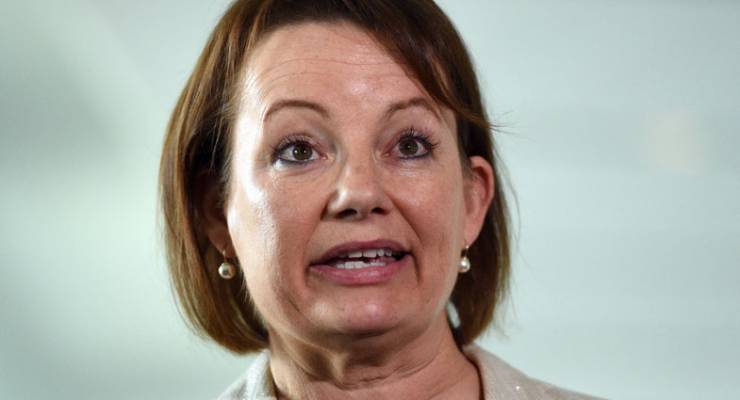
The travel expenses scandal is a perennial favourite of the Australian news media (especially over the summer).
We hate to see our politicians getting greedy, or taking more than we think they’ve earned. Once news breaks that a politician has been squeezing every last bit out of their parliamentary entitlements (or more), there are very tricky waters to navigate if pollies want to keep their jobs.
Media intelligence agency Isentia has crunched the numbers on coverage of politicians’ expense scandals over the past two years to find out what makes a travel expenses scandal, and what happens to the pollies who get caught up.
In about 10 such scandals to hit the media over the past few years, the most important thing a politician can do when they get sprung is ‘fess up.
“These are issues that keep growing,” Isentia research and insights chief executive Khali Sakkas told Crikey. “What happens if you don’t respond is that the story becomes that you are not responding.”
And more than that, it’s a question of fairness, Sakkas says.
“Australians have this really big sense of fairness, and if things are unfair, we’ll try to seek justice for them. It’s unfair to be able to buy apartments on a whim,” she said.
On average, a travel expenses scandal stays in the media for 16 days, and if it doesn’t pass the pub test, the pollie will be out of a job eight days after the story broke.
But one case study that stood out was then-health minister Sussan Ley, who earlier this year resigned from Malcolm Turnbull’s frontbench after a scandal over her travel expenses.
Instead of taking two days to meaningfully respond to the initial reports of charging taxpayers to travel to the Gold Coast for a New Year’s Eve party, Ley took four days. And in expense-scandal time, that’s far too long. By the time a second strike came into play (the apartment Ley said she bought as an impulse-purchase), Ley didn’t have much chance of salvaging her career.
[We lodged an FOI on Ley’s diary, came up empty-handed]
“The issue was dying,” Sakkas said. There was one day where outraged Twitter users could only muster the energy to write 11 angry tweets. “Then the apartment came into play as well,” Sakkas said. “That just propelled it. It was a second hit that really propelled the media attention.”
To add to that, Ley was the health minister at a time when the government was chasing false Centrelink debts and had just cut pensions.
“There was this juxtaposition of this person buying an apartment on a whim, using a private jet and partying on the Gold Coast, compared to the government demanding repayment of Centrelink debt and cuts to 330,000 pensioners,” Sakkas said. “It just fed this idea that politicians have their snouts in the trough.”
In a situation like Ley’s, there was little chance she was going to keep her job, even if she had’ve responded earlier.
“The optics of buying an apartment on a whim was a second strike. This additional issue ensured the story was prominent across all media types and perhaps all of this combined to force action,” Sakkas said.
On average, for politicians who lose their jobs after an expenses scandal, 8000 news items (print, radio, television and online) will be published about the issue. Ley had about 1100 news items published — more than 2 million words were published online and in print about it, and about 5600 stories were broadcast on TV and radio.
Not all scandals Isentia assessed ended up with a sacking. Don Randall, Tony Burke and Steven Irons all kept their jobs. They gave a meaningful response to the scandal breaking a day earlier than cases where politicians lost their jobs.
So the lesson is clear: if you’re a pollie embroiled in an travel expenses scandal, it’s best to say something meaningful, ASAP. But if it’s not going to pass the sniff test, it probably doesn’t matter how quick you show your contrition.








. . . . and supplementary to all the above; what about the Senator who amassed thirty investment properties. What would be the odds on him voting to scrap negative gearing??
What muses me is they think they’re entitled to this sort of “compensation” – for putting themselves out to serve the electorate = “personal compensation for going into public life to make a difference”?
Australians have this really big sense of fairness,……….Where the bloody hell are ya.
The big problem here is that it was apparently OK except for a ride in a comcar. It does not pass any test of logic. For the rest of us it is private the minute you do anything like that. Scandalous. Going to the Gold Coast knowing she was considering a purchase there is apparently OK.
Most humans are opportunists, so I guess most pollies have that characteristic.
I’m not saying it’s right to break the rules or push the boundaries, but if it feels as if it’s ok to make a claim under dubious circumstances, then I’m sure some pollies would do so.
There’s been enough about it in the media over the last 4 or 5 years and I’m sure not all of it would get past the pub test.
This 1 minute animation gives an extreme example . . . . https://youtu.be/vguIXMqCTas
Cheers
Mick